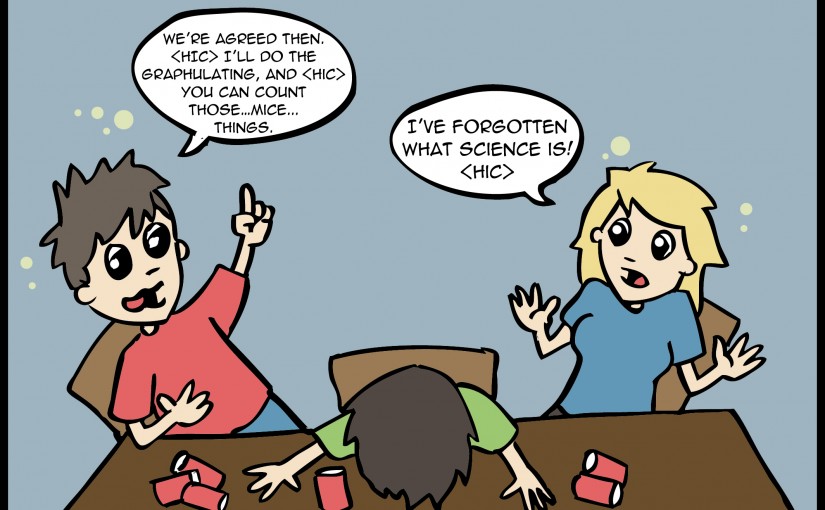This doesn’t mean a trip down the pub or coffee shop with everyone after work – though that is great as well. It means understanding the projects and techniques that your friends and other students are doing. This will not only increase your understanding of scientific principles, but also reveal potential collaborations that might help you get onto other people’s papers and get them to do some work for your paper.
Very few students do this, but in the end the three things that will matter most to your success in academia are the number of papers you have, the number of techniques you can do, and the number of people you know. As a student, it will be difficult to form collaborations with big PIs, but collaborating with students is something you can do easily.
Get Practical Tips- If your university has a student seminar series, this is a great place to meet other students and ask questions in a judgement free zone. Even if your questions are stupid, most likely other people had the same question.
- Ask other students if you can watch them do procedures you are unfamiliar with; there is no better time to learn these things than now. However, it is important to remember they are students as well and may not be performing the technique optimally.
- Take thorough notes when being taught new techniques and video it if you can so it is easier to remind yourself if you don’t use it regularly.
- Don’t form collaborations without telling your supervisor, and make sure they are relevant to your work.
Read Personal Perspective
It wasn’t until I was applying for jobs that I realised how important it was to have experience with multiple techniques. I could have greatly increased my narrow range by learning from other students.
One thing I did do was gain a few middle author papers by contributing my skills to other people’s projects, which was very useful.
